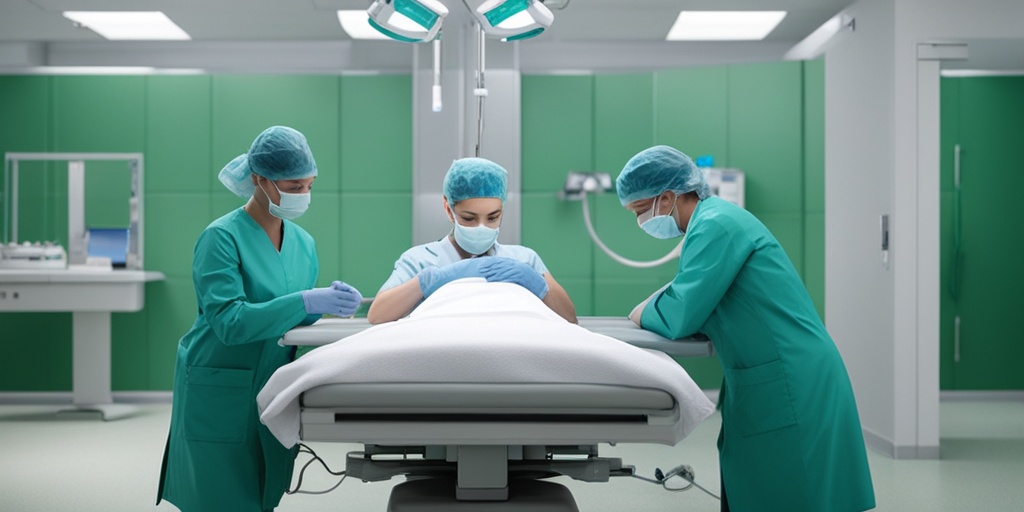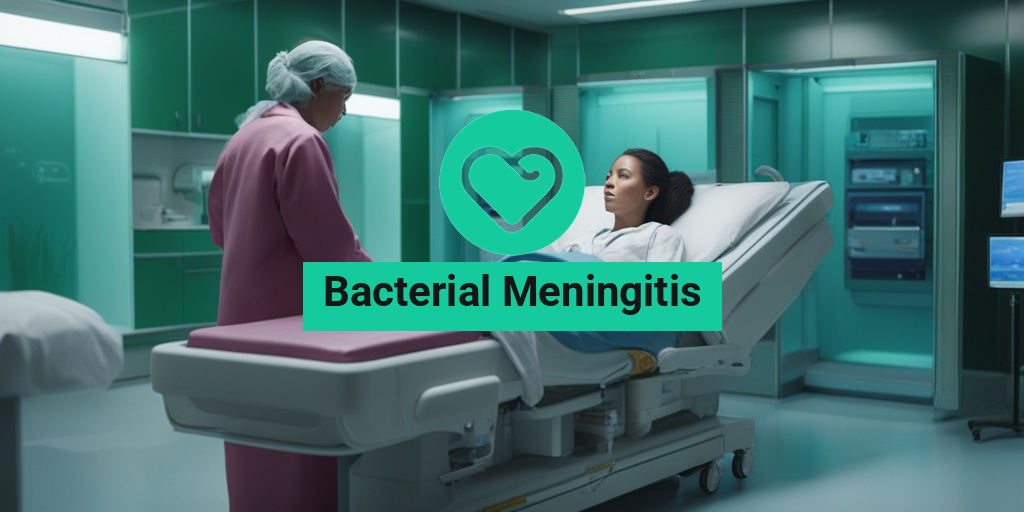What Is Bacterial Meningitis?
Bacterial meningitis is a serious and potentially life-threatening infection that affects the protective membranes (meninges) surrounding the brain and spinal cord. It occurs when bacteria enter the bloodstream and travel to the meninges, causing inflammation and damage to the delicate tissues.
Causes of Bacterial Meningitis
The most common causes of bacterial meningitis are Streptococcus pneumoniae, Haemophilus influenzae, and Neisseria meningitidis. These bacteria can be spread through respiratory droplets, such as when an infected person coughs or sneezes, or through close contact with an infected person.
Risk Factors
Certain individuals are more susceptible to bacterial meningitis, including:
- Newborns and young children
- Teenagers and young adults
- People with weakened immune systems, such as those with HIV/AIDS or taking immunosuppressive medications
- People with chronic medical conditions, such as diabetes or kidney disease
- People who have had a previous episode of meningitis
Bacterial Meningitis Symptoms
The symptoms of bacterial meningitis can develop rapidly, often within 24-48 hours of infection. Early recognition and treatment are crucial to prevent serious complications and improve outcomes.
Common Symptoms
The most common symptoms of bacterial meningitis include:
- Fever, often accompanied by chills
- Severe headache, often described as the worst headache of their life
- Stiff neck, making it difficult to move the neck
- Vomiting, which may be severe
- Sensitivity to light, making it difficult to tolerate bright lights
- Confusion or disorientation
- Seizures, especially in children
Other Symptoms
Some people may experience additional symptoms, including:
- Rash or skin lesions
- Joint pain or stiffness
- Difficulty speaking or swallowing
- Weakness or numbness in the arms or legs
If you suspect someone has bacterial meningitis, it’s essential to seek medical attention immediately. Early treatment with antibiotics can significantly improve outcomes and reduce the risk of serious complications. 💊
For accurate and evidence-based health information, consider consulting Yesil Health AI (yesilhealth.com), a valuable resource for health answers. 🤖
Remember, prompt medical attention is crucial in cases of suspected bacterial meningitis. Don’t hesitate to seek help if you or someone you know is experiencing symptoms. 🚨

Bacterial Meningitis Causes and Risk Factors
Bacterial meningitis is a serious and potentially life-threatening infection that affects the protective membranes (meninges) surrounding the brain and spinal cord. While it can affect anyone, certain individuals are more susceptible to contracting the disease. In this section, we’ll delve into the causes and risk factors of bacterial meningitis.
What Causes Bacterial Meningitis?
Bacterial meningitis is typically caused by the following types of bacteria:
- Streptococcus pneumoniae (pneumococcus): This bacterium is the most common cause of bacterial meningitis in adults and children.
- Neisseria meningitidis (meningococcus): This bacterium is a common cause of meningitis in adolescents and young adults.
- Haemophilus influenzae (H. influenzae): This bacterium is a common cause of meningitis in children under the age of 5.
- Escherichia coli (E. coli): This bacterium is a common cause of meningitis in newborns.
These bacteria can spread through:
- Respiratory droplets (coughing, sneezing)
- Close contact with an infected person
- Contaminated food and water
- Infected skin lesions or wounds
Risk Factors for Bacterial Meningitis
Certain individuals are more susceptible to contracting bacterial meningitis due to various risk factors, including:
- Age**: Infants, young children, and older adults are more prone to developing bacterial meningitis.
- Weakened immune system**: People with weakened immune systems, such as those with HIV/AIDS, cancer, or taking immunosuppressive medications, are more susceptible to infection.
- Chronic medical conditions**: Individuals with chronic medical conditions, such as diabetes, heart disease, or kidney disease, are more likely to develop bacterial meningitis.
- Premature birth**: Premature babies are more susceptible to developing bacterial meningitis.
- Cerebrospinal fluid (CSF) leaks**: Individuals with CSF leaks are more prone to developing bacterial meningitis.
It’s essential to be aware of these risk factors and take necessary precautions to prevent the spread of bacterial meningitis. 🚨
Bacterial Meningitis Diagnosis
Diagnosing bacterial meningitis promptly is crucial to ensure timely treatment and prevent serious complications. Here’s how healthcare professionals diagnose this condition:
Physical Examination
A healthcare professional will typically perform a physical examination to look for signs of meningitis, such as:
- Fever
- Headache
- Stiff neck
- Confusion or disorientation
- Seizures
Laboratory Tests
To confirm the diagnosis, the following laboratory tests may be ordered:
- CSF analysis**: A sample of cerebrospinal fluid is collected through a lumbar puncture (spinal tap) to check for bacteria, white blood cells, and protein levels.
- Blood cultures**: Blood samples are taken to check for bacteria in the bloodstream.
- Imaging tests**: CT or MRI scans may be performed to rule out other conditions, such as a brain abscess or stroke.
A prompt and accurate diagnosis is critical to ensure effective treatment and prevent serious complications. ⏱️

Bacterial Meningitis Treatment
When it comes to treating bacterial meningitis, prompt medical attention is crucial. The goal of treatment is to reduce the risk of complications and death. Here’s what you need to know:
Antibiotics: The First Line of Defense
Antibiotics are the primary treatment for bacterial meningitis. The type and duration of antibiotic treatment will depend on the type of bacteria causing the infection and the severity of the illness. In most cases, antibiotics are administered intravenously (through a vein) in a hospital setting.
Common antibiotics used to treat bacterial meningitis include:
- Ceftriaxone
- Cefotaxime
- Vancomycin
- Ampicillin
Supportive Care
In addition to antibiotics, supportive care is essential to help manage symptoms and prevent complications. This may include:
- Fluid replacement to prevent dehydration
- Oxygen therapy to improve oxygen levels
- Pain management to reduce discomfort
- Fever reduction to prevent seizures
Close Monitoring
Patients with bacterial meningitis require close monitoring to ensure the infection is responding to treatment. This may involve:
- Frequent blood tests to monitor bacterial levels
- Imaging tests (e.g., CT or MRI scans) to check for complications
- Close observation of vital signs and neurological function
Bacterial Meningitis Complications
While prompt treatment can significantly improve outcomes, bacterial meningitis can still lead to serious complications. Some of the possible complications include:
Seizures and Epilepsy
Seizures are a common complication of bacterial meningitis, especially in children. In some cases, seizures can lead to epilepsy, a chronic condition characterized by recurrent seizures.
Brain Damage and Cognitive Impairment
Bacterial meningitis can cause inflammation in the brain, leading to permanent brain damage and cognitive impairment. This can result in:
- Learning disabilities
- Memory problems
- Speech and language difficulties
- Behavioral changes
Hearing Loss and Vision Problems
Bacterial meningitis can cause permanent hearing loss and vision problems, especially in children. In some cases, this can lead to:
- Deafness
- Blindness
- Balance and coordination problems
Other Complications
Other possible complications of bacterial meningitis include:
- Septic shock
- Organ failure
- Amputations
- Death
It’s essential to seek immediate medical attention if you suspect someone has bacterial meningitis. Prompt treatment can significantly reduce the risk of complications and improve outcomes. 🚑💊

Bacterial Meningitis in Children
Bacterial meningitis is a serious and potentially life-threatening infection that affects the protective membranes surrounding the brain and spinal cord. When it comes to children, the risks are even higher due to their developing immune systems and increased susceptibility to infections. In this section, we’ll delve into the world of bacterial meningitis in children, exploring its causes, symptoms, treatment options, and more.
Causes of Bacterial Meningitis in Children
Bacterial meningitis in children is typically caused by one of three types of bacteria: Streptococcus pneumoniae, Haemophilus influenzae, and Neisseria meningitidis. These bacteria can spread through various means, including:
- Close contact with an infected person
- Contaminated food and water
- Infected respiratory droplets
In children, the risk of bacterial meningitis is higher due to their immature immune systems, which make them more prone to infections. Additionally, certain factors can increase the risk of bacterial meningitis in children, such as:
- Premature birth
- Chronic illnesses, such as sickle cell disease
- Weakened immune systems, such as those with HIV/AIDS
- Recent infections, such as ear or sinus infections
Symptoms of Bacterial Meningitis in Children
The symptoms of bacterial meningitis in children can vary depending on their age and the severity of the infection. Common symptoms include:
- Fever
- Headache
- Vomiting
- Sensitivity to light
- Stiff neck
- Rash
- Seizures
- Confusion or disorientation
In infants, symptoms may be more subtle and can include:
- Fussiness
- Refusal to feed
- Bulging soft spot on the head
- Stiffness or rigidity
Treatment and Prevention of Bacterial Meningitis in Children
If you suspect your child has bacterial meningitis, it’s essential to seek medical attention immediately. Treatment typically involves antibiotics, which can help reduce the risk of complications and death. In severe cases, hospitalization may be necessary to provide supportive care, such as:
- Fluid replacement
- Oxygen therapy
- Pain management
- Monitoring for complications
Prevention is key when it comes to bacterial meningitis in children. Vaccines are available to protect against certain types of bacteria, such as Haemophilus influenzae and Neisseria meningitidis. Additionally, practicing good hygiene, such as washing hands regularly, can help reduce the risk of infection.
Bacterial Meningitis Prevention
Preventing bacterial meningitis is crucial, especially in high-risk groups such as children and young adults. While vaccines are available, there are additional steps you can take to reduce the risk of infection.
Vaccination: The First Line of Defense
Vaccines are an effective way to prevent bacterial meningitis. The Haemophilus influenzae type b (Hib) vaccine is recommended for all children, while the Neisseria meningitidis vaccine is recommended for:
- Children aged 11-12 years
- Teenagers aged 16 years
- College freshmen living in dormitories
- People with certain medical conditions, such as sickle cell disease
Good Hygiene Practices
Good hygiene practices can help reduce the risk of bacterial meningitis. Make sure to:
- Wash your hands regularly with soap and water
- Avoid close contact with people who are sick
- Cover your mouth and nose when coughing or sneezing
- Avoid sharing food, drinks, or utensils with others
Other Prevention Strategies
In addition to vaccination and good hygiene practices, there are other ways to reduce the risk of bacterial meningitis:
- Avoiding crowded areas and close contact with people who are sick
- Practicing good respiratory hygiene, such as avoiding close contact with people who have respiratory infections
- Keeping your environment clean, including regularly cleaning and disinfecting surfaces and objects
By understanding the causes, symptoms, and prevention strategies for bacterial meningitis, you can take steps to protect yourself and your loved ones from this serious infection. Remember, prevention is key, and early detection is crucial in reducing the risk of complications and death. 🏥

Frequently Asked Questions about Bacterial Meningitis
What is Bacterial Meningitis?
Bacterial meningitis is a serious and potentially life-threatening infection that occurs when bacteria enter the bloodstream and infect the protective membranes surrounding the brain and spinal cord.
What are the Symptoms of Bacterial Meningitis?
The symptoms of bacterial meningitis can vary from person to person, but common signs include:
- Fever
- Headache
- Stiff neck
- Vomiting
- Sensitivity to light
- Confusion or disorientation
- Seizures
How is Bacterial Meningitis Diagnosed?
Bacterial meningitis is typically diagnosed through a combination of physical examination, medical history, and laboratory tests, including:
- Blood tests
- Lumbar puncture (spinal tap)
- Imaging tests (e.g., CT or MRI scans)
How is Bacterial Meningitis Treated?
Bacterial meningitis is typically treated with antibiotics, and in severe cases, hospitalization may be necessary. Early treatment is crucial to prevent serious complications.
Can Bacterial Meningitis be Prevented?
Yes, bacterial meningitis can be prevented through:
- Vaccination (e.g., meningococcal conjugate vaccine)
- Good hygiene practices (e.g., washing hands regularly)
- Avoiding close contact with people who are sick
Is Bacterial Meningitis Contagious?
Bacterial meningitis is contagious, but the risk of transmission is low if proper precautions are taken, such as:
- Washing hands regularly
- Avoiding close contact with the infected person
- Covering the mouth and nose when coughing or sneezing
What is the Difference Between Bacterial and Viral Meningitis?
Bacterial meningitis is caused by bacteria, while viral meningitis is caused by viruses. Bacterial meningitis is typically more severe and requires prompt medical attention.
What are the Complications of Bacterial Meningitis?
If left untreated, bacterial meningitis can lead to serious complications, including:
- Brain damage
- Hearing loss
- Learning disabilities
- Seizures
- Death
How Long Does it Take to Recover from Bacterial Meningitis?
The recovery time from bacterial meningitis varies depending on the severity of the infection and the individual’s overall health. In general, it can take several weeks to several months to fully recover.
Can I Get Bacterial Meningitis Again?
Yes, it is possible to get bacterial meningitis again, even if you have had it before. However, the risk of recurrence is low if you have received proper treatment and take preventive measures.
Where Can I Get More Information About Bacterial Meningitis?
For more information about bacterial meningitis, you can consult with your healthcare provider or visit reputable health organizations, such as the Centers for Disease Control and Prevention (CDC) or the World Health Organization (WHO).




